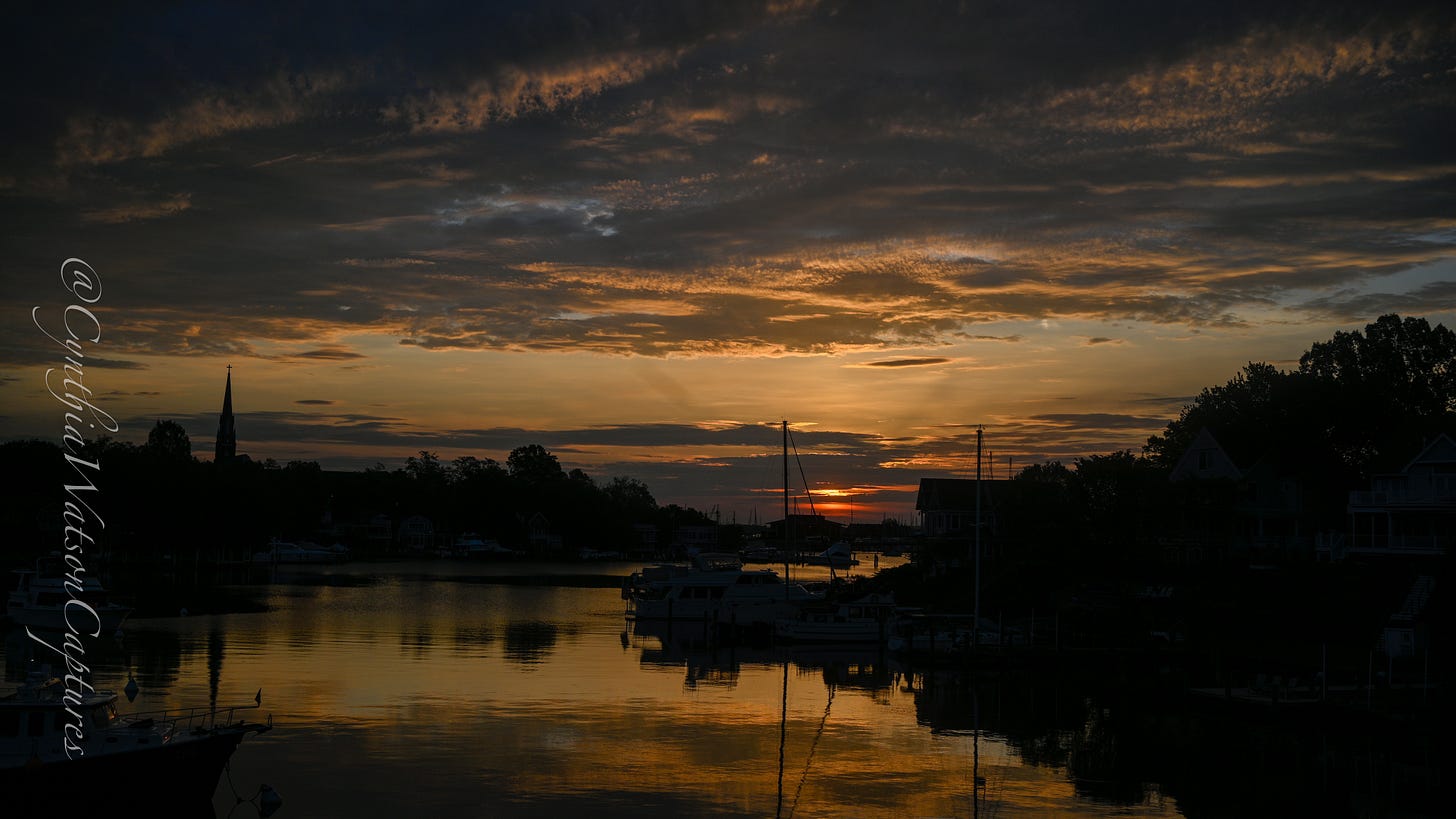Summer is a magnificent time for so many reasons. Unless you’re one of those northern types who think we ought to have snow for 360 days a year (they are wrong, by the way, Cynthia opines), summer months provide warmth, long hours of sunlight, and more opportunities to be outside among the natural beauty we too often take for granted. Countless people exercise as promised in January when most succumbed to warmer indoor activities in front of a computer. Plus, the roses bloom in late spring.
Summer also offers many opportunities for gatherings among families and friends. Three holidays alone—Memorial Day, Independence Day, and Labor Day, all fall within this period.
Time with friends and family happen even more often, thankfully. Last weekend, one of my two friends from almost 60 years ago in South America sent me a heartwarming photograph. It included her two brothers, whom I knew when they were youngsters, and her soon-to-be 96-year-old father. All four looked marvelous, healthy, and satisfied, not least because I was sure they had shared some memories over their days together.
I want to recommend today that you do not put off memory-sharing events. Make sure you take the time to discuss your loved ones’—whether friends or family—experiences now before you don’t have the chance.
I acknowledge today’s musing is preachy, but please recognize the reality that time is the one thing we cannot recapture once it passes. Memories are the remnants of time we can perpetuate if we make the effort.
This is not to advocate for revisiting the past in each conversation. It’s recognizing that as we proceed through life, we want to know different things at various stages. Suppose we don’t take the opportunity to capture that knowledge, particularly about those we care about or family histories. In that case, it will become locked in a vault that no one can eventually open.
Personal histories reveal family joys and interpersonal traumas. They also may unveil significant medical issues we were unaware of but might benefit from knowing. These conversations may explain fragments of our childhoods that we conjure up with age yet do not fully grasp. They also help us understand how we react to things we could not explain to ourselves, much less others.
Before my husband’s birthday a couple of years ago, his sister discovered some audio of their father from decades ago. She had that audio digitized as a gift for my husband, managing to resurrect their father’s voice almost thirty years after his passing. What an unparalleled legacy to successor generations. I don’t advocate that everyone set up a camera to film every conversation among family or friends. Still, it’s not a crazy idea in this era of documenting so much of our lives.
I recommend that we all take time to converse and, more importantly, listen to those we care about while we can because life’s fragility may prevent us from asking something we really want to know.
My column certainly follows on Wednesday’s reminder of the Vietnam era ending fully half a century ago. Generations pass with absolute certainty as do our chances to ask questions of those who matter.
Actions—and inactions—have consequences, after all.
Thank you for reading Actions any day, but I particularly appreciate those who subscribe to the newsletter.
Be well and be safe. FIN






Thank you, Jim. This is heartening for YOU and for all of us. What a fascinating saga yours is.
Excellent! It took me several years to finally accept the fact I couldn't pick up the phone and call my mom or dad and tell them something or ask them a question... like "Mom, can you please send me the recipe for those Thai coconut squares you used to make..." I've had it in my mind to write a book (essentially the story of my life) not necessarily for publication (my life has not been that riveting) but more so my grandson can have the story.
About 14 or so years ago, I found my biological father and we had an instant and very rewarding connection for about 10 years before he passed. One thing that came out of that was a very detailed memoir that his mother had written about his childhood and living through the Russian advance across Northern Poland...the end of WWII in Germany and their eventual journey through Canada before finally settling in the Santa Barbara area. It's a fascinating and terrifying journal at the same time. It gave me incredible insight into my father's life as well as what his parents went through during WWII which included my bio-grandfather being conscripted into the German Luftwaffe as an aircraft mechanic, getting captured by the Allies in Italy and being shipped off to an Allied internment camp in France until the war ended. Then, his journey back to N. Germany to find my grandmother and father.
My life is essentially a tale of two families; both distinctly different and independently interesting. Your column today inspires me to start making clicks on the keyboard!